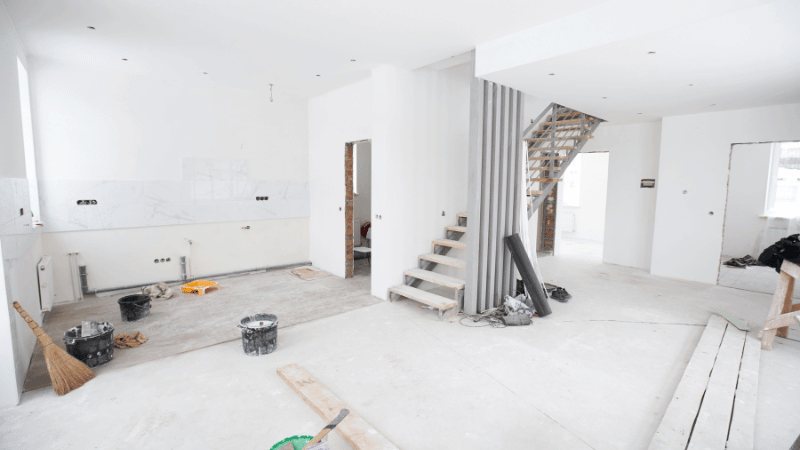Categories
Mortgage Affordability Checks | What You Should Know

A mortgage is a significant and long-term financial commitment, and mortgage lenders have a responsibility to assess the risk involved to make sure they’re not lending you money that you can’t afford to repay.
But what exactly goes into a mortgage affordability check? Let us share some insider knowledge on how the mortgage affordability check works and the things you can do to improve your chances of securing the mortgage you need.
To get a comprehensive understanding of your mortgage options before you apply, complete our quote form below:
The Basic Factors for Mortgage Affordability
At its core, an affordability check is an evaluation of your finances. As we’re all used to keeping our personal finances somewhat private, it can feel a little invasive, but it has to be done both for the lender who wants to make a thorough risk assessment, and for you - the last thing you need is a mortgage you can’t afford that ends in a painful and distressing repossession.
To work out your mortgage affordability, lenders are looking at a few things:
- Your income - This isn’t just your salary. Good lenders will take into account the full spread of the money you have coming in, which includes your regular pay cheque, any dividends from business shares, bonuses, income from rental properties, and other investments. Anything that is a reliable source of income can help your affordability test.
- Your outgoings - The opposite of income, your outgoings cover all bills, your standard commitment to things like debts and childcare, and can also include an assessment of semi-regular costs such as the frequency and expense of your family holidays.
- Your debt-to-income ratio - Also known as your DTI, debt-to-income ratio is a percentage that measures how much of your income is committed to covering existing debt.

Rent vs. Mortgage Size for Affordability
Many people assume that because they’ve successfully paid high rent for years, they should automatically qualify for a mortgage of a similar size.
It’s not an unreasonable assumption, and it’s not just that lenders are being unfair when they evaluate your affordability.
However, lenders view mortgages differently from renting, focusing on long-term sustainability rather than short-term affordability. Here are three key differences:
 Rent includes other costs - When you rent a property, the maintenance and upkeep of the property is folded into that monthly rental payment; when you become a homeowner, however, you will have to find the money to pay to keep your house in good order as well as cover the mortgage.
Rent includes other costs - When you rent a property, the maintenance and upkeep of the property is folded into that monthly rental payment; when you become a homeowner, however, you will have to find the money to pay to keep your house in good order as well as cover the mortgage.
Lenders are not blinded by the oversimplified idea that rent represents the same obligation as a mortgage.

You may have been struggling with rent - Many people will push themselves to pay rent at the detriment of their general finances, especially with ever-increasing rent levels. Mortgage lenders have to be a lot more careful with responsible mortgage lending than landlords with rent sizes.
It is important to the lender that you are not merely ‘just about able’ to make the mortgage repayments each month, but that you can do so comfortably while still having money left over for other aspects of your life.

The government will help out with rent - While not often mentioned out loud, the truth is that if you suddenly become out of work or ill, or anything happens where you can’t pay your rent, the government will step in and help with the housing portion of Universal Credit.
It may also be the case that you are already getting some of this benefit. No such backup exists for homeowners, so the lender must be careful to properly evaluate your affordability using more stringent criteria.
The calculations that go into determining the size of your mortgage are specific and unique to the considerations of a long-term home-owning loan, and do not represent the same considerations that go into the portion of your income you allocate to rent.

Recent Mortgage Case Studies
Read some of our recent client stories detailing how we can help in complex and unorthodox mortgage scenarios:
Affordability Stress Testing
Part of your mortgage affordability check will be the stress test.
This is where your affordability calculation is checked against a larger mortgage than the one you are applying for. It represents the idea that your mortgage rate will change over the years and factors outside your control may throw calculations into disarray.
Events of September 2022 put the value of stress testing into the spotlight. A year before the infamous 'mini-budget' of the Liz Truss government, mortgage rates were at some of the lowest they had ever been - below 2% for most mortgages. They then shot upwards, reaching as much as 6% average.
Stress testing can seem unfair, with applicants reasonably asking ‘Why is my affordability being tested against a 10% mortgage rate, when my rate is 5.5%?’, but the security a stress test offers for the future is essential for long-term stability.

What Do Lenders Actually Check?
Documentation is everything.
By being prepared and having your finances clearly laid out, you can speed up your mortgage application and avoid delays at the affordability check stage.
Your lender will check 5 main things:

Employment and income - Knowing that you have a stable income from regular employment is the central part of affordability testing.
Your payslips, bank statements, and P60 form are essential if you are PAYE salaried employee.
If you are self employed, two-to-three years of tax returns (SA302 forms) will be needed to show your income. Affordability checks are often a problem for the self-employed, as a true measure of income can be difficult. Specialist lenders can help. Speak to the dedicated self-employed mortgage team at Clifton Private Finance to learn more.

Outgoings - Your bank statements are vital. Lenders will want to see a minimum of three months’ bank statements, though many will request a more comprehensive history.
Your statements will be analysed to look for essential expenses such as food shopping and direct debits for bills, the cost of your dependants, and your discretionary spending that covers entertainment and holidays etc.

Debts - All existing debts will have a significant impact on your affordability check. Loans, credit cards, car finance agreements, and overdrafts will all combine to your DTI calculation.
DTI is key - if a large part of your income is already used to repay debt, lenders will lower your mortgage value. A DTI of 20-30% is reasonable, but anything over 50% will make it difficult to secure your desired mortgage.

Deposit size - While not a direct part of the affordability checks, the larger your deposit, the lower the risk for the lender and the more flexible the affordability testing could be.

Credit history - Your credit score is a metric that is used alongside the affordability check to determine your mortgage viability. Like the deposit size, it doesn’t directly affect the mortgage affordability check but does have a significant impact on your final assessment.
At Clifton Private Finance, we work hand-in-hand with you to present your finances to the lender in the best possible light. By talking openly and honestly with our mortgage team about your finances, we can help you find a lender that will offer you the mortgage you need at the best possible rates.

How to Improve Your Mortgage Affordability
There are plenty of things you can do to control and improve your mortgage affordability testing.
Reduce Debt
Debt-to-income ratio (DTI) is one of the biggest factors in determining affordability and should be given the most focus. Applicants with low debt obligations are far more likely to secure sizeable mortgages on good terms.
Consider:
- Paying off credit card balances - Credit cards are a major stumbling block for many applicants and should be considered your greatest enemy to good affordability. Lowering your credit card usage below 50% is essential if you want to get a decent mortgage. Spend whatever time you need to push your credit card balances back as much as possible.
- Finish personal loans - If you have only a few months left on any personal loans, or can overpay them to remove them entirely, then this is worth doing.
- Clearing overdrafts - Overdrafts can seem minor or inconsequential, but prologued use of your overdraft shows poor financial management and has a significant impact on affordability stress testing. Try to ensure your bank balance remains above zero for the months before making a mortgage application.
- Avoid new credit - Not only do new credit applications represent a growth in credit, but the act of applying for credit impacts your credit history. Avoid applying for new credit in the months leading to a mortgage application.
The once exception to this rule is if you can secure credit that significantly lowers the interest being paid, such as a debt consolidation loan or 0% balance transfer credit card. These can be useful to bring your debt in line but beware of the trap of using them to extend your credit use.
Even small reductions in your credit balance will have a strong positive influence on your affordability, so every action you take is worthwhile.

Balancing Debt vs. Deposit
Most lenders will be looking for a minimum 10% deposit on your property purchase, but nonetheless it is always advisable to cut into your deposit to clear debt.
Reducing your debt-to-income ratio by paying off debt will often improve your borrowing power more than a slightly larger deposit would.
Only once your DTI is consistently below 30% does putting the money aside for the deposit make true financial sense. While this can seem like delaying your mortgage while you save up more money for the deposit, in truth it is faster to do this than keep your deposit safely locked away and trying to spend the months paying off debt.
Balancing your debt vs. your deposit is an important consideration. Speak to a Clifton Private Finance mortgage specialist or one of our personal finance team to get advice on balancing savings against debt.

Cut Back on Spending
Take a good and honest look at your monthly expenses and cut back everything that isn’t necessary. Go through your bills and make sure everything is in order, cancel additional TV service and software subscriptions, avoid take-aways and too much eating out, etc.
It is also important that you show a general level of fiscal responsibility. This includes making sure everything is paid on time and avoiding gambling transactions as these are a particular red flag to mortgage lenders.
Spending the hours it may take to go through your every transaction, direct debit, and frivolous spend to check and analyse your spending habits may seem tedious, but getting your finances under control and showing maturity will greatly improve your chances of a successful mortgage application.

Increase Your Income (If Possible)
As income is one of the greatest factors in determining affordability, it makes logical sense to try to increase it. This may seem out of reach, but it’s often more achievable than people believe.
If your employer is understanding and you haven’t had a pay rise for a while, asking for that review now and explaining how you are looking to buy a home may bring you the boost you need.
You may also want to look at side ‘gig-based’ income. Even a few hundred pounds a month can make a valuable difference in your affordability.
Applying for a joint mortgage or Tenants in Common mortgage with a financially-reliable partner will greatly improve your affordability - two salaries are always better than one.
How We Can Help You Pass Mortgage Affordability Checks
Partnering with Clifton Private Finance as your mortgage broker could be your strongest asset when considering your affordability checks.
We understand the lender’s criteria - Working every day in the mortgage and finance industry means we really get what it is lenders are looking for. We can work with you on every aspect of your income and expenditure, fine-tuning in the right places to really boost your affordability assessment.
We work with the whole UK marketplace of lenders - While some lenders will reject you or offer you a lower mortgage with poorer rates, others will understand your finances better, view you in a more holistic way, or take more income streams into account. We know which lenders are better suited to your personal circumstances and can match you with a mortgage provider who is right for you.
We handle the paperwork and negotiations - Presenting yourself in the right way to the lender can make all the difference. With decades of experience, our mortgage team will make sure your application is water-tight and work on your behalf to discuss your specific needs with the lenders, maximising your chances of a smooth mortgage affordability check.
Don’t let the lender’s affordability checks get in the way of you and the mortgage you’re after. Contact Clifton Private Finance today for stress-free mortgage stress testing.












